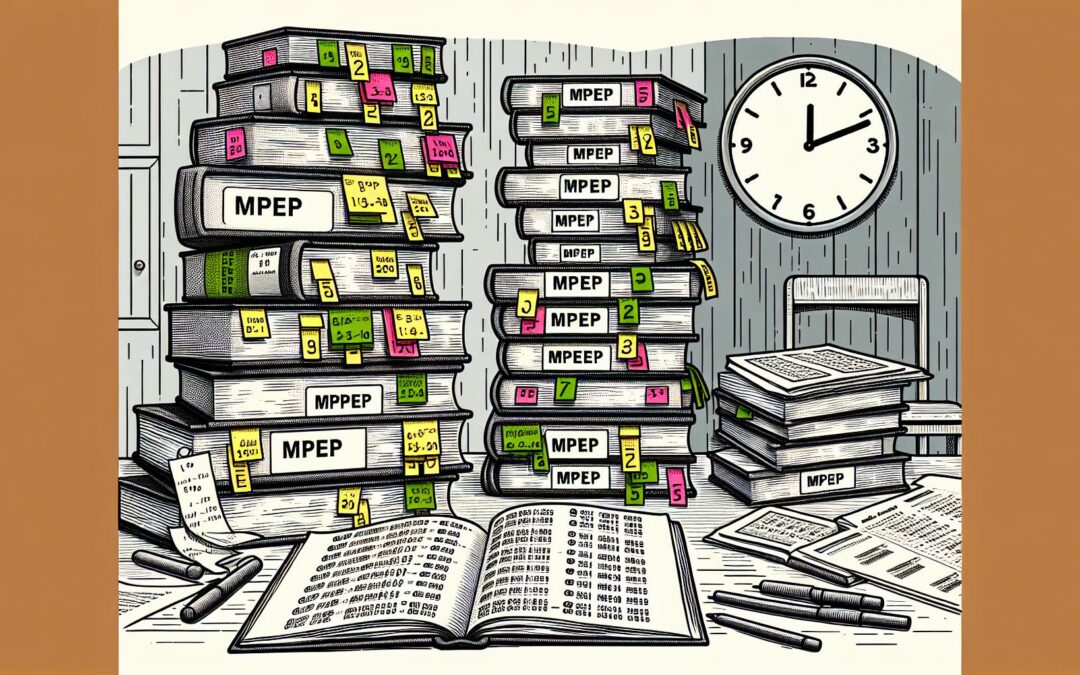Embarking on a journey to pass the patent bar exam is a pivotal step for those eyeing a career in patent law. But did you know that your college major can significantly impact your eligibility and preparation for this challenging exam? Diving into the world of patent bar majors, you’ll discover how certain fields of study not only meet the requirements but also set you up for success. This article will guide you through the essential majors that align with the patent bar’s prerequisites, offering you a clear path to achieving your goals. Whether you’re a student planning your academic future or a professional contemplating a career shift, understanding the intersection of education and patent law is crucial. Let’s unravel the mysteries of patent bar majors together, ensuring you’re well-informed and ready to take the next step.
The Importance of Choosing the Right Major for the Patent Bar Exam
Embarking on a career in patent law requires strategic planning, especially when it comes to education. Choosing the right major isn’t just about meeting the prerequisites for law school; it’s about ensuring you’re eligible to sit for the patent bar exam. This exam is your gateway to becoming a patent attorney or agent, so selecting a major that aligns with its requirements is crucial.
The United States Patent and Trademark Office (USPTO) has stringent qualifications for those wishing to take the patent bar exam. Your major must include a significant amount of coursework in science or engineering. This is because patent professionals need a solid understanding of technical subjects to effectively protect inventions.
- Electrical Engineering
- Mechanical Engineering
- Chemical Engineering
- Biochemistry
- Computer Science (with laboratory component)
These fields not only satisfy the USPTO’s criteria but also equip you with the knowledge necessary to tackle the complexities of patent law. It’s important to note that merely having a degree in these areas isn’t enough. The coursework and laboratory experience play a pivotal role in your preparation.
For those whose interests lie outside the traditional realms of science and engineering, there’s still a pathway. The USPTO allows for certain interdisciplinary majors, provided they include adequate science or engineering courses. Also, if your major isn’t listed as one of the eligible fields, you can still qualify by passing the Fundamentals of Engineering (FE) exam, which serves as a testament to your proficiency in general engineering principles.
Choosing the right major is not just about meeting regulatory requirements. It’s about setting yourself up for success in a competitive field. Being well-versed in science or engineering not only makes you eligible for the patent bar exam but also enhances your ability to understand and protect complex inventions. As you navigate through your academic and career path, aligning your major with these requirements will prove to be a strategic step towards achieving your goals in patent law.
Understanding the Requirements of the Patent Bar Exam

When you’re setting your sights on a career in patent law, getting familiar with the Patent Bar Exam requirements is a foundational step. Administered by the United States Patent and Trademark Office (USPTO), this exam is your gateway to becoming a patent attorney or agent. But, not everyone can take this test; you need to meet specific educational qualifications.
First off, a strong background in science or engineering is non-negotiable. The USPTO maintains a list of accepted degrees that automatically qualify you to sit for the exam. These include majors in:
- Electrical Engineering
- Mechanical Engineering
- Chemical Engineering
- Biochemistry
- Computer Science (with lab component)
If your major doesn’t directly align with these fields, don’t lose heart. The USPTO allows for other pathways. For instance, you might be eligible if you’ve taken sufficient courses in acceptable subjects or if you’ve passed the Fundamentals of Engineering (FE) exam, deemed a credible indicator of your proficiency in engineering.
Documentation is key. When applying for the Patent Bar Exam, you’ll need to provide your educational transcripts. This helps the USPTO verify your qualifications and ensures that your background fits within their specified criteria. It’s crucial to prepare these documents in advance to smooth out your application process.
Also, the USPTO categorizes applicants based on their qualifications – Category A for direct qualification through a degree, Category B for those with enough science or engineering courses, and Category C for exceptional cases, including FE exam passers. Understanding which category you fall into can significantly clarify your application steps.
In establishing your eligibility to take the Patent Bar Exam, remember, your educational background not only helps you meet regulatory requirements but also prepares you for the complexities of patent law. A thorough understanding of science or engineering principles is indispensable for protecting innovative inventions effectively.
Exploring the Top Majors for the Patent Bar Exam

When you’re aiming to ace the Patent Bar Exam, your choice of major is not just a box to tick—it’s a foundational step towards your future success in the patent law field. The USPTO has drawn clear lines around the qualifications required, emphasizing the necessity for a strong background in science or engineering. Let’s investigate into the best majors that align with these requirements and set you up for a bright career in patent law.
Electrical Engineering stands out as a top choice for aspiring patent attorneys and agents. Its comprehensive curriculum covering circuits, digital systems, and electromagnetic fields equips you with the technical knowledge highly sought after in the patent industry, especially in the fields of telecommunications and electronics.
Mechanical Engineering is another leading major, revered for its versatility. The study of mechanics, thermodynamics, and material science prepares you for a wide range of inventions needing patent protection, from simple tools to complex machinery.
If you’re fascinated by the chemical makeup of products, Chemical Engineering may be your ideal path. This major bridges the gap between raw materials and finished products through an in-depth understanding of chemical processes, making it invaluable for patenting chemical formulas and processes.
For those interested in the intersection of biology and technology, Biochemistry is a stellar pick. This major provides crucial insights into the molecular and chemical processes within and related to living organisms—essential knowledge for biotechnology patents.
Finally, Computer Science with a Laboratory Component is essential for exploring the digital age’s complexities. This major hones your understanding of software, hardware, and the theoretical underpinnings of computer systems—critical for protecting technological innovations.
Each of these majors not only aligns with the USPTO’s eligibility requirements but also prepares you for the intricacies of patent law, ensuring you’re well-equipped to protect groundbreaking inventions. Remember, the right major isn’t just about meeting criteria; it’s about setting the stage for a fulfilling career in patent law.
Engineering Majors: A Strong Foundation for the Patent Bar Exam

When you’re eyeing a career in patent law, focusing on engineering majors can lay a solid groundwork for your journey to passing the Patent Bar Exam. The diverse fields of engineering not only satisfy the United States Patent and Trademark Office (USPTO) requirements but also equip you with a robust set of skills vital for understanding and protecting innovations in technology.
Electrical Engineering stands out as a premier choice for aspiring patent professionals. Its emphasis on circuits, systems, and software is directly applicable to numerous patent applications. Your expertise in this area can be a game-changer when dealing with patents related to electronics or telecommunications.
Mechanical Engineering is another pillar for those aspiring to excel in patent law. Its broad coverage, from thermodynamics to machine design, prepares you to tackle a wide range of patent applications. The mechanical systems and processes you’ll become familiar with are foundational to numerous inventions needing patent protection.
Chemical Engineering offers a unique vantage point by blending knowledge of chemistry, biology, and physics to solve problems related to materials, energy, and manufacturing processes. If your passion lies in the chemical or pharmaceutical sectors, this major can be critical for your success in patent law.
It’s also worth mentioning the role of Computer Science with a laboratory component. In our increasingly digital world, expertise in software, algorithms, and computing systems is indispensable. This major directly correlates with a growing number of tech-based patents, positioning you ideally in the patent law field.
By selecting one of these engineering majors, you’re not just ticking boxes for the USPTO; you’re also aligning yourself with the future needs of innovation and protection. This strategic choice ensures you’re well-prepared not only for the Patent Bar Exam but for a successful career in patent law, helping safeguard the breakthroughs that drive our society forward.
Science Majors: Harnessing Technical Knowledge for the Patent Bar Exam
When you’re aiming for a career in patent law, your major matters more than you might think. Science majors, particularly those in rigorous fields, equip you with the technical knowledge fundamental for acing the Patent Bar Exam and thriving in the profession. Let’s zoom in on why majors such as chemistry, physics, and biology are not just beneficial but often critical for aspiring patent attorneys or agents.
Firstly, chemistry majors dive deep into the molecular level of materials, understanding complex reactions and processes that are often at the heart of patentable inventions. This knowledge is crucial when dealing with patents related to pharmaceuticals, materials science, and chemical processes. Your ability to grasp the nuances of these topics can make or break your success in patent litigation and application drafting.
Physics majors bring a broad understanding of the principles governing energy and matter. This foundation is invaluable in areas such as semiconductor technology, optics, and mechanical devices. Patents in these sectors demand a solid understanding of complex physical theories, which you’ll be well-equipped to handle.
Biology majors, on the other hand, possess a fundamental understanding of life sciences that is crucial for biotechnology and medical device patents. With biotech being one of the fastest-growing patent categories, your expertise in this area can open up numerous opportunities in the patent law field.
Interdisciplinary majors that integrate these science disciplines with engineering principles are also highly regarded. They offer a blend of theoretical and practical knowledge that’s often applicable to a wide range of technological fields covered by patents.
Plus to your major, passing the Fundamentals of Engineering (FE) exam can further validate your technical competence, especially if your degree isn’t directly listed as a qualified major for the Patent Bar. This step underscores your mastery of engineering fundamentals and enhances your credibility in the patent law domain.
Remember, the technical knowledge you gain from these science majors doesn’t just fulfill educational requirements for the Patent Bar Exam. It equips you with a profound understanding of the scientific and technological principles vital for guiding inventors through the patent process, ensuring their innovations are well protected.
Computer Science and Information Technology Majors: Navigating the Digital Landscape of the Patent Bar Exam
In the ever-evolving digital age, the patent law field has seen a significant increase in the demand for professionals well-versed in computer science and information technology. If you’re pursuing a career in patent law with a focus on these areas, understanding how your major fits into the patent bar exam requirements is crucial.
Computer science majors need to pay particular attention to the laboratory component of their education. Not all computer science degrees automatically qualify for the patent bar exam. Specifically, a Bachelor’s degree in Computer Science must include a laboratory course to meet the criteria set by the United States Patent and Trademark Office (USPTO). This emphasizes the importance of hands-on experience and practical application of your knowledge in computing.
For those in information technology (IT) majors, the world is a bit different. While IT encompasses a broad range of computer-related skills, the patent bar eligibility often hinges on the specific coursework taken. If your degree includes significant science or engineering coursework, especially in areas directly applicable to patent law like software engineering, data science, or network security, you’ll stand a stronger chance of qualifying.
Critical Skills and Knowledge
Your journey doesn’t end at choosing the right major. The skills and knowledge acquired through these programs are invaluable in exploring the digital world of patent law. Here’s how:
- Problem-Solving Skills: Both computer science and IT majors develop acute problem-solving skills. You’ll learn to deconstruct complex digital problems, a key asset when dealing with intricate patent cases.
- Technical Proficiency: Deep understanding of coding languages, algorithms, data structures, and network architecture equips you to tackle patents related to cutting-edge technology.
- Analytical Thinking: Being able to analyze data and technology trends is essential. Your insight will aid in forecasting future technological advancements and their potential patent implications.
Embarking on a career in patent law with a background in computer science or IT positions you at the forefront of technological innovation. The blend of technical knowledge and legal insight you bring is unparalleled, making you a vital asset in protecting digital inventions.
Other Majors that Complement the Patent Bar Exam
When diving into careers in patent law, it’s not just the traditional science or engineering degrees that hold value. There are several other majors that can complement your qualifications for the Patent Bar Exam and enhance your versatility in the field. Understanding these complementary disciplines can open up a broader spectrum of opportunities in patent law.
Social Sciences and Humanities disciplines, such as Psychology and Sociology, may not be direct tickets to eligibility for the Patent Bar. But, these fields can sharpen your understanding of human behavior and innovation, skills that are invaluable in the nuanced world of patents. These majors can help you excel in areas of patent law that require deep insight into user interaction or societal impacts of technological advancements.
Business and Law majors are another formidable asset. A background in Business Administration or Finance arms you with the knowledge to navigate the commercial aspects of patents, such as valuation and market impact. For those with a law degree who are pursuing further specialization in patent law, understanding the intricacies of intellectual property (IP) from a business standpoint is crucial. These skills are particularly beneficial in roles that bridge the gap between technical invention and market application.
Mathematics stands out as well for those interested in the more technical or theoretical aspects of patents, especially in fields like cryptography or software patents. A solid foundation in math can provide you with the analytical skills needed to grasp complex patentable concepts.
Courses and certifications in Technical Writing can also be immensely beneficial. Precision in language and the ability to convey complex ideas clearly are skills that cannot be overstated in patent law. Whether drafting patent applications or interpreting the scope of a patent, the clarity of communication often dictates the strength and enforceability of a patent.
While these majors may not directly qualify you for the Patent Bar Exam, combining them with the required science or engineering courses, or clearing the Fundamentals of Engineering (FE) exam, can significantly bolster your qualifications. It’s about creating a multidisciplinary skill set that not only meets the exam’s eligibility criteria but also prepares you for a successful career in patent law.
Conclusion
Choosing the right major is a pivotal step in your journey towards a career in patent law. With the detailed insights provided, you’re now equipped to make an well-informed choice that aligns with the Patent Bar Exam requirements. Whether you lean towards engineering, computer science, or even a blend of science and humanities, remember, each path holds its unique advantages. Your chosen major not only prepares you for the exam but also shapes your expertise in the vast field of patent law. As you move forward, keep in mind the value of interdisciplinary studies and the potential to enhance your qualifications through additional certifications like the FE exam. Your future in patent law starts with this crucial choice, so choose wisely and embrace the journey ahead.








